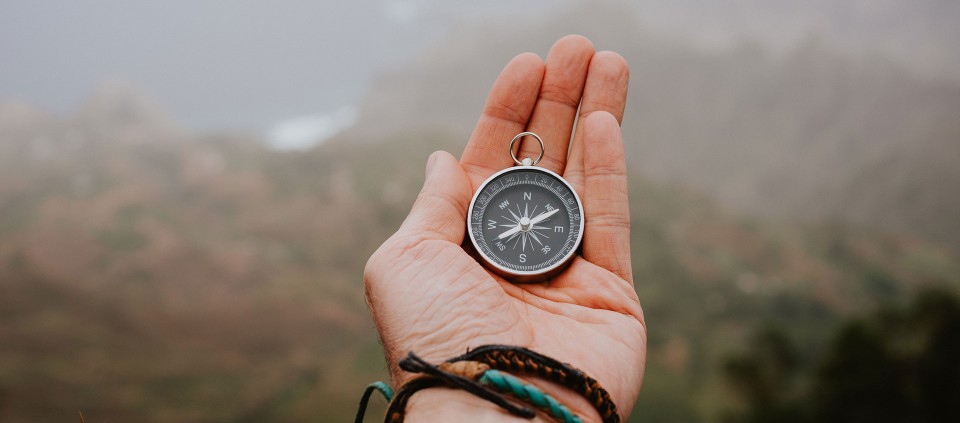I Don’t Know, and That’s Okay: Six Practices for Cultivating Beginner’s Mind

There’s a Zen koan that relates an exchange between a master and his student:
Fayan was going on pilgrimage. Master Dizang said, “What is the purpose of pilgrimage?”
“I don’t know,” Fayan answered.
Dizang said, “Not knowing is most intimate.”
At times, on the spiritual path and in life, we may find ourselves on a pilgrimage, wandering aimlessly through loops of habit and pattern, spirals of thoughts and feelings—weary, confused, and unable to see the next step. Where am I going? What am I doing? Why am I here? What is next?
There is a radically honest, raw, and vulnerable response to such questions: “I don’t know.” Not knowing is part of human nature and experience. What would it be like to truthfully admit that, on the deepest level, we don’t know? Is it possible to give yourself permission to taste and marinate in what Dizang spoke of: the intimacy of not knowing?
Anyone who has spent time with small children has likely played the “What is it” or “Why” game. “I wonder what this is?” “But why is it like that?” As we grow up, we tend to lose our connection to curiosity, amazement, and wonder.
How do we learn to open to and embrace what we do not yet know? How do we savor the gap between the invisible and the visible? The teachings of Zen Buddhism offer a practice referred to as “don’t-know mind” or “beginner’s mind.” This practice is an opportunity to develop a wise relationship to those times in our lives when we bump up against not knowing. The teachings invite us to cultivate an attitude of inquisitiveness and interest; a mind that questions, allows, and is willing to learn and be surprised.
Shunryu Suzuki, author of Zen Mind, Beginner’s Mind, writes, “In the beginner’s mind, there are many possibilities. In the expert, there are few.” At times, knowing can fog our vision. It keeps us stuck in grooves of patterns and tightly held beliefs, blinded by sameness and ways of living that limit the growth of heart and mind. When we loosen the grip of knowing and identifying, a journey toward new horizons begins, and we expose ourselves to the possibility that life can look, feel, and be different.
The unknown then becomes a sacred voyage of discovery. Steering through the waters of uncertainty requires intention, commitment, dedication, and great courage. The practices of meditation and mindfulness can be a reliable compass. They invite us to shift out of autopilot; to pause, connect, and make contact with the unknown in a whole, embodied way. Life must sometimes be simply lived and experienced, without being known or understood. We learn to be rather than do.
Beginner’s mind is a mind free of an agenda, expectations, judgments, or prejudices. It is an openhearted presence that allows us to pay attention, listen closely, and see things as they truly are. This internal shift of attitude from doing to being provides an opening for life to unfold in its own time, in its own way, and at its own pace. The process invites us to remember and return to the childlike capacity for experiencing the freshness of each moment.
Through practice and over time, we foster the confidence to ride the waves through this unknown territory, into the emergence of all that has yet to be seen and revealed. As Zen master Hsin Hsin Ming says, “The great way is not difficult for those who have no preferences.” Is it possible to let go of the outcome and be open to the outcome, to lean into the unfamiliar, unfolding, and mysterious spaces of your being?
Six Practices to Develop Beginner’s Mind and Navigate the Unknown
- Consciously choose to drive or walk a new way to work, and notice what you see and experience along the way.
- Commit to watching the sunrise each day for seven days. Pay attention to what stays the same day by day, and what changes. Use this as a reminder that every day is a new opportunity to start fresh.
- Practice mindful eating. Look at and examine the details of your food, the plate, the spoon, and the environment around you. As you begin to eat, savor the textures, color, smells, sights, and taste.
- Tap into your inner creative child through dance, art, painting, or coloring.
- List 10 things that you know you do not want to do. Acknowledging the things we don’t want to do often gives us insight into what we do want to do.
- Journal, using one or more of these questions for inspiration: What is your relationship to the unknown? What fills you with a sense of aliveness, wonder, and awe? What is the value of a fresh start? Where in your life might it be possible to open to change?
Find out about upcoming programs with Jess Frey at Kripalu.
© Kripalu Center for Yoga & Health. All rights reserved. To request permission to reprint, please email editor@kripalu.org.
Jess Frey (she/her), E-RYT 1000, is a Kripalu Yoga educator, life coach, and artist known for her authenticity, motivation, and depth.
Full Bio and Programs